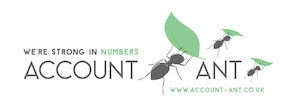Hitting the VAT threshold where you must charge VAT on sales and reclaim VAT on purchases is a point in time that strikes fear and dread into a lot of business owners (particularly those serving the public)…. But, it should be something to celebrate (at least momentarily). First let me give you a bit of background.
Businesses in the UK are required to register for VAT purposes once they reach a TURNOVER of £85,000. Some industries can hit the threshold quickly i.e. Sam is a builder based in Keighley. He started up mid 2020 and has completed about 30 projects in that time. Some tiny and some as big as lifting the roof off 😅. Material prices are sky rocketing, and as an industry, they charge materials and labour to the customer. But that means his turnover has now reached threshold. There are ways of delaying the enviable but its quite a lot of faff and ultimately not really worth the hassle if it is inevitable.
However in the instance of Keith, a self employed delivery driver based in Bradford who deals mostly with domestic customers (i.e. people, not businesses), he will need to add VAT onto his prices from the date of VAT registration. If he takes the 20% increase and hands it straight onto his customer, it instantly makes him 20% more expensive than his non VAT registered competitors.
So why in the heck should I celebrate?! I hear you asking…..
Hitting a turnover of £85,000 per year is a BIG deal. It most likely means what you are doing is a success and you deserve to celebrate your hard work and success.
If you reframe your thoughts about VAT then you’ll be a lot happier.
Don’t treat your VAT like a fine, treat it as a sign that you are doing the right thing. If your taxes are increasing then so is your profit.
Let’s go back to the issue of being 20% (or whatever rate your industry needs to use – I’ll speak to you about that individually, if needed) higher than your competitor….Let’s have a think. If you are Keith the delivery driver then you can reclaim the VAT on your fuel so you shouldn’t need to add the full 20% onto the customer quotes just because you’ve become VAT registered. You should be able to work out your profit margin with and without VAT and then uplift your customer prices to reflect a deficit, if, in fact, there is one….again I can help you with this if you need it.
And what about Sam the builder? Well Sam, were you savvy enough to increase the cost including VAT to your customer invoices before becoming VAT registered? If so, then you’ll be in a happy place. You’ve just gained the VAT on your PURCHASES back! Yay!
If you are not sure when you will hit the VAT threshold just add up the last 12 month’s Sales, take off the sales from the first month and add on what you think you’ll do next month. If that number is over £83,000 then register for VAT.
You can register for VAT by yourself or you can ask an Accountant for assistance. When you go into your Business Tax Account there are lots of options. If you find this in any way overwhelming then shout for help rather than potentially get it all wrong.
So you see, VAT is not something you should be overly worried about. Get the champers out instead to toast your success.
I really hope this short post has helped you. If you have any questions at all, please shout now!







